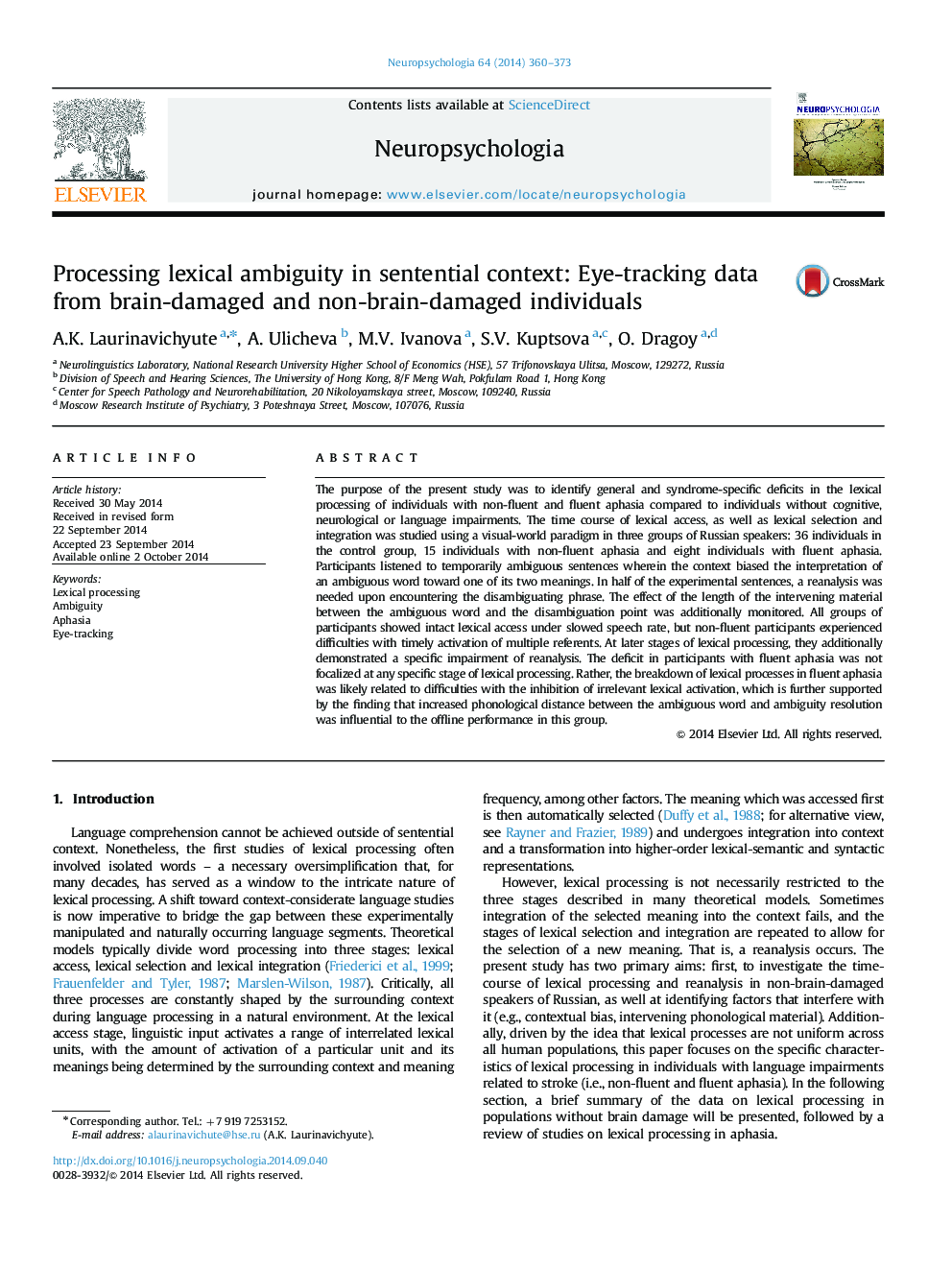| Article ID | Journal | Published Year | Pages | File Type |
|---|---|---|---|---|
| 7320897 | Neuropsychologia | 2014 | 14 Pages |
Abstract
The purpose of the present study was to identify general and syndrome-specific deficits in the lexical processing of individuals with non-fluent and fluent aphasia compared to individuals without cognitive, neurological or language impairments. The time course of lexical access, as well as lexical selection and integration was studied using a visual-world paradigm in three groups of Russian speakers: 36 individuals in the control group, 15 individuals with non-fluent aphasia and eight individuals with fluent aphasia. Participants listened to temporarily ambiguous sentences wherein the context biased the interpretation of an ambiguous word toward one of its two meanings. In half of the experimental sentences, a reanalysis was needed upon encountering the disambiguating phrase. The effect of the length of the intervening material between the ambiguous word and the disambiguation point was additionally monitored. All groups of participants showed intact lexical access under slowed speech rate, but non-fluent participants experienced difficulties with timely activation of multiple referents. At later stages of lexical processing, they additionally demonstrated a specific impairment of reanalysis. The deficit in participants with fluent aphasia was not focalized at any specific stage of lexical processing. Rather, the breakdown of lexical processes in fluent aphasia was likely related to difficulties with the inhibition of irrelevant lexical activation, which is further supported by the finding that increased phonological distance between the ambiguous word and ambiguity resolution was influential to the offline performance in this group.
Related Topics
Life Sciences
Neuroscience
Behavioral Neuroscience
Authors
A.K. Laurinavichyute, A. Ulicheva, M.V. Ivanova, S.V. Kuptsova, O. Dragoy,
